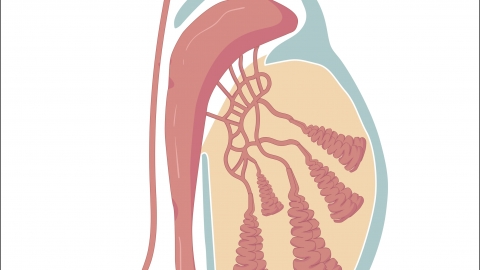What should I do about painful swelling of the testicles?
Generally, testicular swelling and pain may be caused by excessive sexual activity, prolonged standing or sitting, epididymitis, orchitis, prostatitis, and other factors. It is recommended to seek medical attention promptly and follow a doctor's guidance for treatment, which may include general care and medication therapy. Detailed explanations are as follows:

1. Excessive Sexual Activity
Frequent sexual activity can cause repeated congestion of the testicles, excessive fatigue, accumulation of metabolic products, and impaired local blood circulation, leading to testicular swelling and pain. In daily life, one should maintain a moderate frequency of sexual activity, appropriately scheduled according to individual physical condition and age, avoid excessive sexual behavior, and maintain hygiene before and after sexual intercourse.
2. Prolonged Standing or Sitting
Prolonged standing or sitting can obstruct blood circulation in the lower body, impairing venous return in the scrotal area. This can lead to venous blood stasis, causing testicular tissue congestion and edema, resulting in swelling and pain. One should regularly change body posture to avoid maintaining the same position for long periods. During work or study, get up and move around or perform simple stretching exercises at regular intervals to promote blood circulation.
3. Epididymitis
Epididymitis is mainly caused by the spread of urinary tract infections, scrotal trauma, and unhealthy lifestyle habits. The inflammatory irritation may cause congestion and edema of the epididymal tissue. The swollen epididymis can compress surrounding nerves, causing pain. When the inflammation spreads to the testicles, it can also cause testicular swelling and pain. Symptoms may also include a feeling of heaviness in the scrotum and hard nodules in the epididymis. Treatment may include medications such as roxithromycin capsules, ciprofloxacin hydrochloride tablets, and heat-clearing detoxifying oral liquid, under a doctor's guidance.
4. Orchitis
Orchitis is often caused by viral infections, with the virus reaching the testicles through the bloodstream and triggering inflammation. Under inflammatory stimulation, testicular tissue may become congested and edematous, with increased volume and stretched tunica, stimulating nerve endings and causing pain. Symptoms may also include high fever and chills. Patients may follow medical advice to use medications such as levofloxacin tablets, azithromycin tablets, and Yinhua Piyanling tablets for treatment.
5. Prostatitis
Prostatitis may be caused by pathogen invasion, urine reflux, excessive alcohol consumption, spicy food intake, and other factors. When the prostate becomes inflamed, it may lead to local congestion and edema. The inflammation can irritate surrounding nerves, triggering inflammatory responses in the testicular area and causing testicular swelling. Patients may also experience symptoms such as frequent urination and urgency. Under a doctor's recommendation, patients may use medications such as tamsulosin hydrochloride sustained-release capsules, Qianlieshutong capsules, and levofloxacin hydrochloride capsules for treatment.
In daily life, it is important to maintain good personal hygiene habits, especially keeping the genital area clean; avoid prolonged cycling to reduce perineal pressure.








